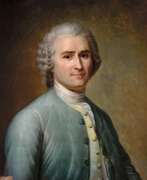Writers Sentimentalism
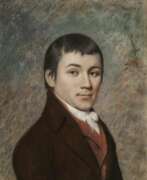

Charles Brockden Brown was an American writer, historian, and editor.
Brown took up literary endeavors early in life. In 1798, his first mystical and psychological novel, Wieland, was published. Brown also wrote the novels Ormond (1799), Edgar Huntley (1799), and Arthur Merwin (1799-1800).
Brown's works interweave fiction, history, fantasy, psychology, and liberal politics. Brown is considered the father of the American novel. His American-style Gothic novels pioneered and paved the way for two of the greatest early American writers, Edgar Allan Poe and Nathaniel Hawthorne.
Charles Brown also wrote a great deal of journalism on political, educational, and historical topics.
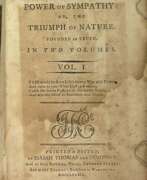

William Hill Brown was an 18th-century American novelist writer.
Brown apparently believed that one of the main purposes of literature was to instill some moral values. It is on this conviction that his novel The Power of Sympathy, or The Triumph of Truth-Based Nature (1789), which is considered the first American novel, is built. It caused a great scandal, however, because it is based on a real-life gruesome story of kidnapping, accidental incest, and suicide.
This novel is a prime example of the American approach to the European genre of the epistolary novel, but with lush descriptions of landscapes and a frank discussion of American slavery. This book can also be considered one of the first explicitly American works of literary criticism, containing lengthy reflections on the nature and purpose of literature and its role in moral formation, especially for women. The popularity of this work initiated the creation of many sentimental novels in the United States.
During his short life, Brown also wrote the romantic novel Harriot, or Domestic Reconciliation (1789), the play West Point Preserved (1797), a tragedy about the death of a Revolutionary spy, a series of verse fables, the West Indies-style comedy Penelope, and a second short novel about incest and seduction, Ira and Isabella.
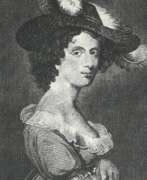

Hannah Webster Foster, born Hannah Webster, was an American writer.
Hannah received a good academic education for women and began writing political articles for Boston newspapers in the 1770s. In 1797, a sentimental novel she wrote, The Coquette, or the Story of Eliza Wharton, was published anonymously. The novel was based on a true story involving seduction, elopement, and a tragic death, and was a great success. The book was reprinted dozens of times, but it wasn't until the 1866 edition, many years after Foster's death, that the author's real name was placed on the title page for the first time.
Hannah Foster's second book, The Boarding School, or Lessons of a Female Educator to her Female Educators (1798), was devoted to the subject of education.
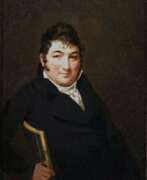

Samuel Relf was an American journalist and author.
Relf became known as the author of the novel Infidelity, or Victims of Sentimentality, first published in 1797 in Philadelphia. This scandalous book has been called "the first independent Philadelphia novel" to deal with the consequences of adultery. As a journalist, Relph built his work on stories from newspaper articles and in general, it was initially conceived as a magazine article. The book caused considerable controversy in post-revolutionary America.
